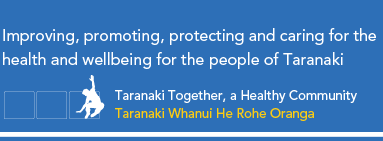Information on Whooping Cough
9 July 2012
Whooping cough (or pertussis) is a highly contagious illness that is caused by a bacterium (Bordatella pertussis). It can affect babies, children and adults. Whooping cough usually starts like a cold, with a runny nose and sneezing, and then the characteristic cough develops. Coughing bouts can be very severe and frightening, and may end with a crowing noise as breath is drawn in (the whoop). Coughing fits can be followed by gagging or vomiting.
Many cases occur in adolescents and adults who may just have a persistent annoying cough, however, for young children, especially babies, whooping cough can be life threatening. The cough can interfere with a baby’s breathing and they may lack oxygen and turn blue. Young children are especially at risk of severe illness, which may result in hospitalisation. One in four children develops pneumonia. Some have fits (convulsions) and some may develop inflammation of the brain (encephalitis).
Whooping cough is spread by an infected person through droplets produced during coughing or sneezing. Direct contact with infected secretions from the mouth and nose can also pass on the infection.
After exposure to the pertussis bacterium, it usually takes nine to ten days to become ill, but illness may start anywhere between 6 to 20 days from being infected.
The coughing may last from a few weeks to 3 months or more. One attack of the disease usually produces long-term immunity, though second attacks in the same individual can occur. Children who are unimmunised are at especially high risk of infection.
There are epidemics of pertussis affecting most regions of New Zealand every 3-4 years. New Zealand currently has an epidemic. Cases are being reported from all districts of Taranaki. From the beginning of 2009 to date there have been a total of 137 cases of whooping cough notified in the Taranaki region with 30 (22%) of these cases residing in the South Taranaki District. A total of 13 (10%) of the 137 cases were hospitalised. Of those hospitalised, 8 (62%) cases were aged 5 years or less and 5 (39%) were aged less than one year. To date, for this year, the total number of notified cases (27) is approaching that for all of 2011 (30).
A person is highly infectious for the first two weeks of their cough. This gradually decreases until at 21 days from the onset of the cough when cases are no longer infectious, although coughing may still last up to three months. Treated cases are no longer infectious after they have received 5 days of a 14 day course of antibiotics.
Treatment is usually a 14 day course of antibiotics which reduce the time a person is infectious to others. Antibiotics need to be given within 21 days of the start of the cough. In general, antibiotics do not reduce the severity of symptoms or the duration of the cough, but do reduce transmission.
A person with whooping cough should stay away from work, school and child care until they have had five days of a 14 day course of antibiotics, or until 21 days after the start of the coughing or until the end of coughing, which ever comes first.
The best was to prevent whooping cough is by vaccination. Newborns children are not protected by anitbodies from their mother, even if the mother has previously had whooping cough. For infants, it takes three immunisations for whooping cough (pertussis) at 6 weeks, 3 months and 5 months to obtain immunity so it is very important to have the immunisations on time.
The protection provided by childhood vaccination gradually reduces over time, leaving adolescents and adults potentially at risk of catching the disease.
For more information please call
Sue Carrington
Media Adviser
Ph 021 367 789
Last updated: Monday, July 9, 2012



